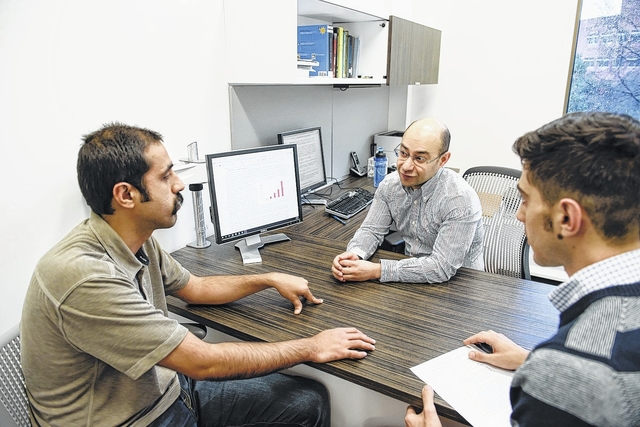CLEMSON — New research at Clemson University could help save billions of dollars on drug development, bring treatments to market more quickly and save the lives of patients who might otherwise be assigned to inferior treatments.
Amin Khademi, an assistant professor of industrial engineering, will conduct this research over five years with a $500,000 award through the National Science Foundation’s Early Career Development Program.
Khademi aims to help researchers identify which treatments in clinical trials are most effective as early as possible and make adjustments accordingly. He plans to do it with a highly advanced mathematical technique called “stochastic dynamic programing.”
It would be an improvement over traditional clinical trials, which are comparatively inflexible, Khademi said. Traditional trials hinder innovation in design and analysis, so they take longer, cost more and expose patients to inferior experimental therapies, he said.
“Even a 1-percent improvement on average translates to annual savings on the order of billions of dollars,” he said. “It would be a transformative innovation, providing more patients with greater access to treatment at a lower cost.”
While clinical trials help determine the risks and benefits of new treatments, they are becoming more expensive. Developing a new prescription medicine that gains market approval takes more than a decade and costs about $2.6 billion, according to the Tufts Center for the Study of Drug Development.
The biggest driver of the increase is the cost of clinical trials, which can total $300 million-$600 million, according to a report published by the Institute of Medicine of the National Academies.
In hopes of reversing the trend, Khademi wants to help researchers adapt clinical trials to new information they are learning while the trials are under way. The approach would make clinical trials more efficient and would reduce the time, total sample size and cost of running the study without sacrificing integrity, he said.
As the clinical trial progresses, researchers would be able to put new groups of patients into treatments that are working instead of subjecting them to ineffective or potentially harmful treatments, Khademi said.
“Therefore, we are fair to patients who could have been given a toxic drug,” he said. “And we are learning the efficacy of a good drug with many fewer patients.”
Cole Smith, chair of the industrial engineering department, said that Khademi’s novel approach shows promise in improving the way clinical trials are designed.
“Dr. Khademi is well positioned to not only make a vital contribution to the theory of stochastic optimization but also to solve challenging real-world problems, especially in health care,” Smith said. “I congratulate him on his NSF CAREER award, which places him among the nation’s top early-career faculty members.”
Khademi said the math behind improving clinical trials is very difficult.
One of the challenges that he faces is that clinical trials involve many random, unknown factors, and that’s where his expertise in stochastic dynamic programming comes into play.
The math involved was inspired by slot machines in the 1950s and is known as the multi-armed bandit problem. Imagine a gambler facing a row of old-fashioned slot machines, sometimes called one-armed bandits. To maximize winnings, the gambler needs to decide which machines to play, how many times to play them and in what order.
The type of math that Khademi does would help the gambler exploit the machines that are paying off while continuing to learn more about the how well the other machines pay off.
“It’s the trade-off between putting resources into what we know works and exploring other options,” he said.
Khademi said the same mathematical principles can be applied to clinical trials, except they involve researchers instead of gamblers and groups of patients instead of slot machines.
They can also be applied to other problems in which decisions need to be made about how to allocate limited resources to competing projects. For example, an online retailer could use the method and web history to decide which products to advertise on the limited space of your computer screen, Khademi said.
Khademi plans to share his findings with AnMed Health researchers who conduct clinical trials. He also expects to offer seminars at AnMed Health to introduce the concept of adaptive clinical trials and their benefits to physicians and other health care practitioners.
Also as part of his grant, Khademi is developing an undergraduate Creative Inquiry course that will teach students about multi-armed bandit problems and how to apply them in the design of clinical trials. He expects to integrate new course material from his research into a Ph.D. -level course.
Anand Gramopadhye, dean of the College of Engineering, Computing and Applied Sciences, congratulated Khademi on the award.
“The NSF CAREER award is one of the nation’s highest honors for junior faculty members,” Gramopadhye said. “Dr. Khademi exemplifies the role of teacher-scholar through education, research and the integration of the two. The award is richly deserved.”

